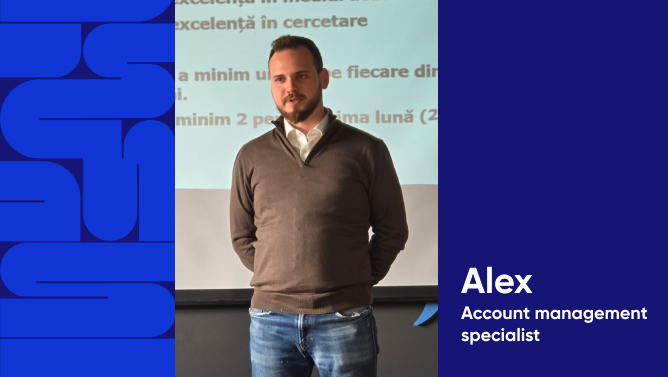No matter how talented, hardworking, or creative a team may be, without organization, any situation can quickly take a turn for the worse. This is something we’ve learned from our own experiences firsthand. In a marketing agency, where multiple clients, projects, and team members are involved, staying organized isn’t merely a suggestion; it’s a necessity.
This is precisely why every marketing agency requires a dedicated project management department. By emphasizing healthy boundaries, strategic delegation, and organizational coherence, project managers do more than just oversee tasks; they ensure that both the team and clients thrive in a harmonious, productive environment.
Recognizing that this can be one of the most challenging roles within an organization, we’ve compiled some invaluable tips from inside our agency, directly from our project managers.
Always establish healthy boundaries.
In any professional setting, the importance of setting healthy boundaries cannot be overstated. For marketing teams, this means having the confidence and clarity to say “no” or to negotiate demands that might otherwise compromise the quality of the work or the well-being of the team. Similarly, understanding and respecting the client’s boundaries and expectations are crucial. By openly discussing these limits, both parties can work more effectively, reducing conflicts and ensuring a smoother project flow.

Align your project management strategy to your agency’s needs.
There is no one-size-fits-all solution when it comes to project or account management. Each marketing agency must develop and refine its approach based on its specific business context, team dynamics, and client portfolios. Customizing methodologies to fit the unique demands of your business not only enhances efficiency but also ensures that your management practices genuinely support your team’s best work.
Adapt.
The mantra of “track, analyze, report, and learn” is vital. Continuous monitoring and analysis of ongoing projects allow for real-time adjustments and improvements. Regular reporting keeps all stakeholders informed and engaged, while the lessons learned from each project inform future strategies, fostering a culture of ongoing enhancement and proactive adaptation.

Implement Asynchronous communication.
In our experience, the adoption of asynchronous communication (which means any type of communication where two people aren’t expected to be present and available at the exact same time) can be transformative. By moving away from a reliance on immediate responses, you can minimize disruptions and maximize focus on critical tasks. This shift not only reduces the pressure of urgency—which is often overrated—but also provides team members the space needed for deeper reflection and more considered responses, ultimately leading to higher quality outcomes and decision-making.
Move beyond micromanagement.
Effective project management involves more than just overseeing every small detail—it’s about strategic foresight and delegation. Investing time in developing robust methodologies and proactive planning can preempt many issues that would otherwise require reactive measures. This proactive stance not only saves time but also empowers team members by trusting them with responsibility and reducing the need for constant oversight.
Create a positive work environment.
As a project manager, you should cultivate a workspace that fosters mutual respect, clear communication, and shared goals. By providing clarity and support to both the team and clients, you can facilitate a productive and positive environment where creative solutions flourish and client relationships are strengthened.

Insights from the subsigners.
Alex, our account manager, explains what he has learned from his efforts to optimize intern processes in our agency in order to deliver better solutions to our clients:
“When optimizing the internal processes, there is no classic recipe. Usually, necessity teaches you. There is nothing wrong with a „try and error” type of strategy. The more methods you try, the better are your chances to succeed. But one thing is sure: you have to always analyze the context in an objective manner and find the solutions according to the results. How to do that?
Firstly, it’s crucial to identify both the strengths and weaknesses within the team and in our commercial relationships, allowing us to capitalize on our advantages while addressing areas for improvement. Crafting a clear strategy, both short and long term, provides a roadmap for achieving our goals effectively. Utilizing tracking, analysis, and comprehensive reporting mechanisms enables us to monitor project progress and make informed decisions.
Mentorship plays a vital role in fostering professional growth and skill development within the team. Also, implementing appropriate tools and technology enhances productivity and streamlines workflows.
Delegation of tasks based on individual strengths and workload capacity optimizes resource allocation and ensures timely delivery. Creating standardized documents such as contracts, NDA, and presentations facilitates seamless communication and project execution. Prioritizing tasks according to importance and urgency allows us to focus on high-impact activities.
Additionally, evaluating personal capacity and resources helps determine the optimal workload for each team member within specific timeframes. Encouraging participation in project management or account management courses further enhances skills and knowledge. It’s important to note that while optimizing processes is beneficial, it should not be pursued blindly; sometimes, it’s better to prioritize practicality over complexity.”

When it comes to project management done down to the smallest detail, Dana is our specialist who always knows how to apply the most innovative tactics to ensure that our projects are delivered on time and that the team works at its healthiest and most efficient mode. Here’s what she says about the benefits of optimizing internal processes in a marketing agency:
“Well, the benefits can be immediate or realized over time, providing both short-term wins and long-term sustainability. By testing, learning and applying different methods, we’ve experienced enhanced efficiency in project timelines, allowing us to deliver high-quality work within set deadlines. This has directly contributed to a noticeable increase in profitability.
Moreover, optimizing processes has fostered a healthier work environment, promoting clearer task allocation and fostering better collaboration among team members. With tasks and responsibilities clearly defined, our team operates with greater clarity and cohesion, leading to improved productivity and project outcomes. Additionally, the streamlined processes have resulted in clearer reporting mechanisms and more effective communication, leading to better feedback from clients and an overall increase in satisfaction rates.”

Never ignore project management in a marketing strategy.
In any robust marketing plan, project management serves as the backbone, ensuring seamless execution and optimal results. We understand this firsthand from our own experience. If you’re seeking to collaborate with a team of project management specialists to bolster your marketing efforts, while also harnessing the creative prowess of our entire agency, consider externalizing your marketing department to us. By partnering with Subsign, you gain access to a wealth of expertise and resources, enabling you to streamline workflows, meet deadlines with precision, and achieve your marketing objectives with confidence.
If you want to get more information about our services, leave us a message.


